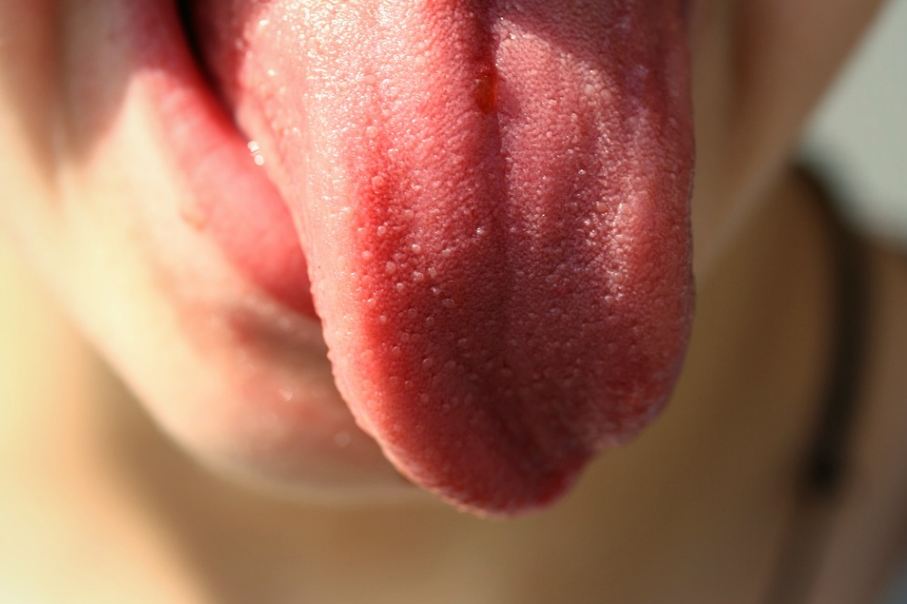Dry tongue? Is it even possible?
Well, you might have experienced it at one point in your life — your tongue appears a little funky, your mouth seems uncomfortably sticky. At first, it sounds impossible to have a dry mouth — after all, your mouth is supposed to be the wettest part of your body. Nevertheless, it happens.
The mouth must maintain a certain amount of hydration as it helps flush away food particles and prevent bacteria from building up. The acids that these bacteria produce can cause severe oral diseases and infections. Without enough saliva to protect the teeth and gums, oral health issues are more likely to arise.
Unknown to many, one’s oral health can be an indication of your present health condition. When you feel like your tongue or your mouth feels dry, your body must be telling you something. A dry mouth can be very annoying, not to mention, it worsens your oral health problems (gum disease, bad breath, gingivitis, etc.).
HAVING A DRY TONGUE
Dry tongue and mouth are more than just ‘dry.’ Several symptoms also accompany this condition, which, if left untreated, could become a severe nuisance to your everyday activity. If you have these sensations, you might want to consult your doctor for a remedy.
- Feeling of stickiness inside the mouth
- Having a ‘rough’ tongue
- Thick and stringy saliva
- Bad breath
- Chewing/eating and speaking discomfort
- Dry throat
- Difficulty in taste
- Persistent oral problems
Having a dry tongue can stem from several reasons. In general, the root causes might point to conditions and medications that hinder saliva production in the salivary glands. This article will help you go through these causes to develop the most appropriate solution for your dry tongue.
CAUSES OF DRY TONGUE
Salivary glands keep our tongue and mouth wet by producing saliva. The saliva should give our mouth enough moisture to help us speak, chew, and eat easier without tension or discomfort. If the salivary glands are hampered, we can name the following as culprits.
1. Aging Process
Our body never stays the same as we grow old. Our metabolism, eating habits, nutrition, and health condition slowly deteriorates as our muscles decline. Most of us develop illnesses along the way, and these long-term health conditions may impede our body’s processes, including the salivary glands.
2. Side Effects of Medication
Medications can severely hamper the saliva production in your mouth. Countless medicines such as those used in treating high blood pressure, anxiety, and depression might have side effects that can make the mouth dry. If you take antihistamines, decongestants, muscle relaxants, and pain relievers, a dry mouth is no surprise.
3. Side Effects Cancer Therapy
Combating cancer with chemotherapy can also affect the production of saliva within the salivary glands. Treatments that especially involve radiation can cause damage to the salivary glands, which consequently affect saliva production. This side effect can be temporal or long-term, depending on the amount of radiation exposure the head and neck sustained.
4. Adverse Effect of Tobacco and Alcohol
Smoking tobacco and drinking an insane amount of alcohol depletes hydration in your mouth gradually. You will notice that after years of constant alcohol and tobacco consumption, your tongue develops a dehydrated texture, not to mention your teeth being more prone to staining. Continued use of these substances increases dry tongue and mouth symptoms, leading to more severe complications.
5. Result of Nerve Damage
Head and neck traumas that more likely resulted in nerve damage also affect the mouth’s hydration. The injury itself or the treatment/surgery performed in the head and neck areas may have touched the salivary glands, so if you have a dry mouth after such incident or surgery, this might explain it.
6. Substance Use
Recreational drug use is also known to result in a dry mouth. For example, methamphetamine or ‘meth’ severely disrupts the salivary glands and causes serious dental fallouts and stains, usually referred to as ‘meth mouth.’ Using these substances also makes the body crave sweets and sodas after use, furthering the damage to the person’s gums and teeth.
7. A Red Flag to Other Health Issues
Many other health conditions may constitute a dry tongue or mouth. This dehydration might stem from severe illnesses such as diabetes, stroke, yeast infection in the mouth, to name a few. Auto-immune diseases like Sjogren’s syndrome and HIV/AIDS may also trigger this symptom.t
WHAT TO DO WITH A DRY TONGUE
Having your tongue moisturized is key to taking care of your oral and overall health. While drinking water is the obvious, most common solution, it is not always the most convenient. So, here are some tricks that you can try to rehydrate your dry tongue and mouth.
- Avoid medications that impede your saliva production.
- Junk dehydrators like tobacco, alcohol, caffeine, and sugar.
- Try chewing sugarless gum. It improves your saliva production as it exercises the muscles in your mouth.
- Observe proper oral care.
- Choose an alcohol-free mouthwash.
- Try sucking on an ice cube.
- Try herbal remedies such as aloe vera, ginger, and sweet pepper.
- If water is too bland, try juices and fruit extracts but with less sugar.
- Try over-the-counter saliva substitutes and stimulants.

